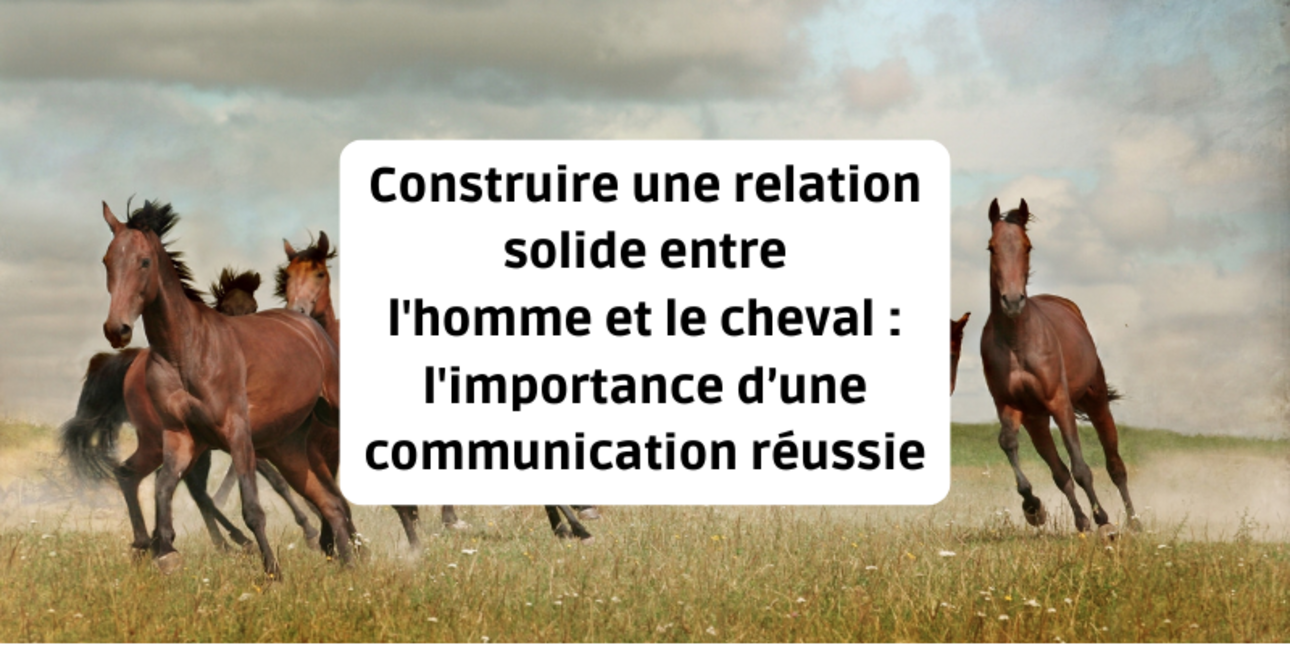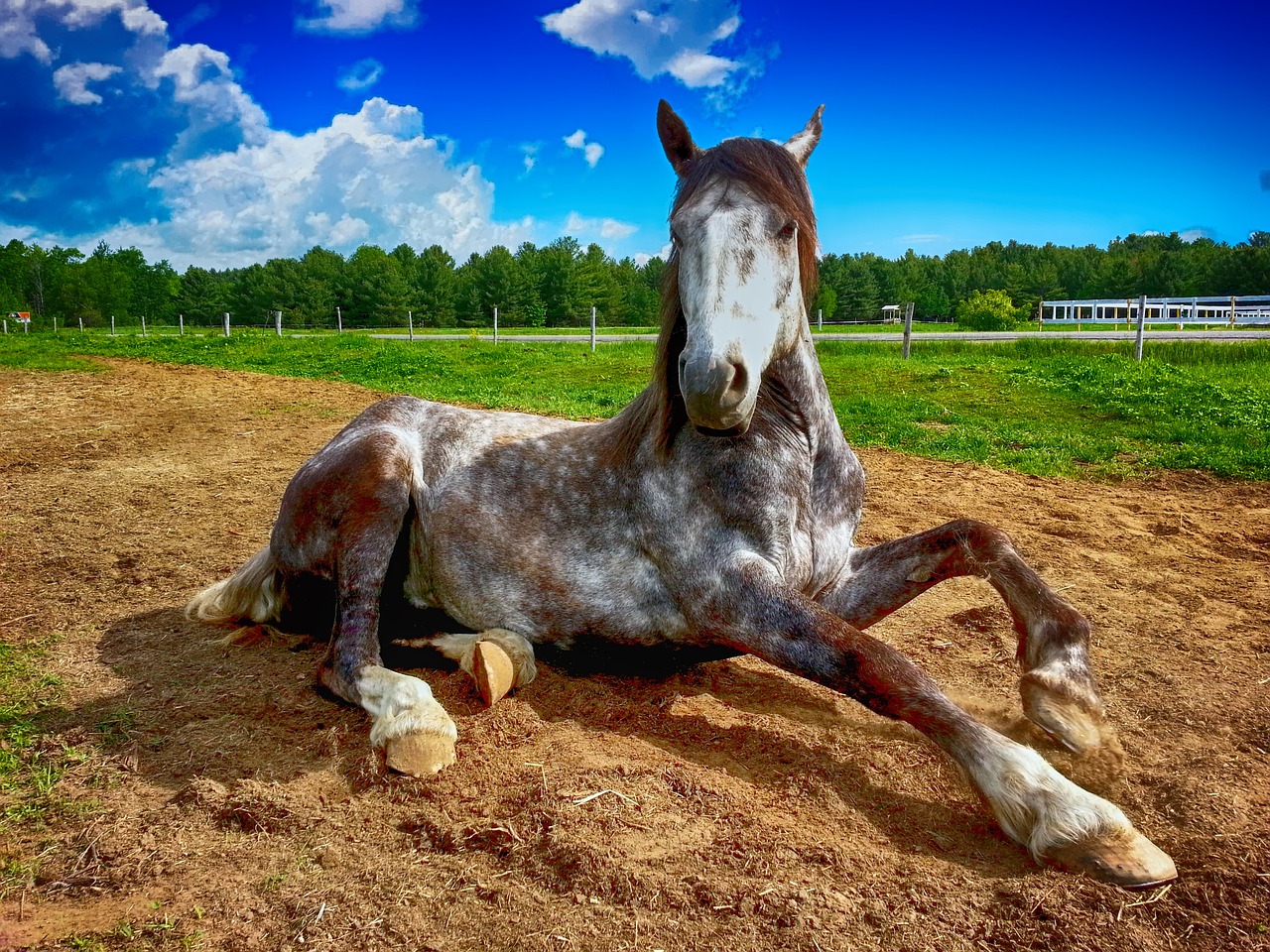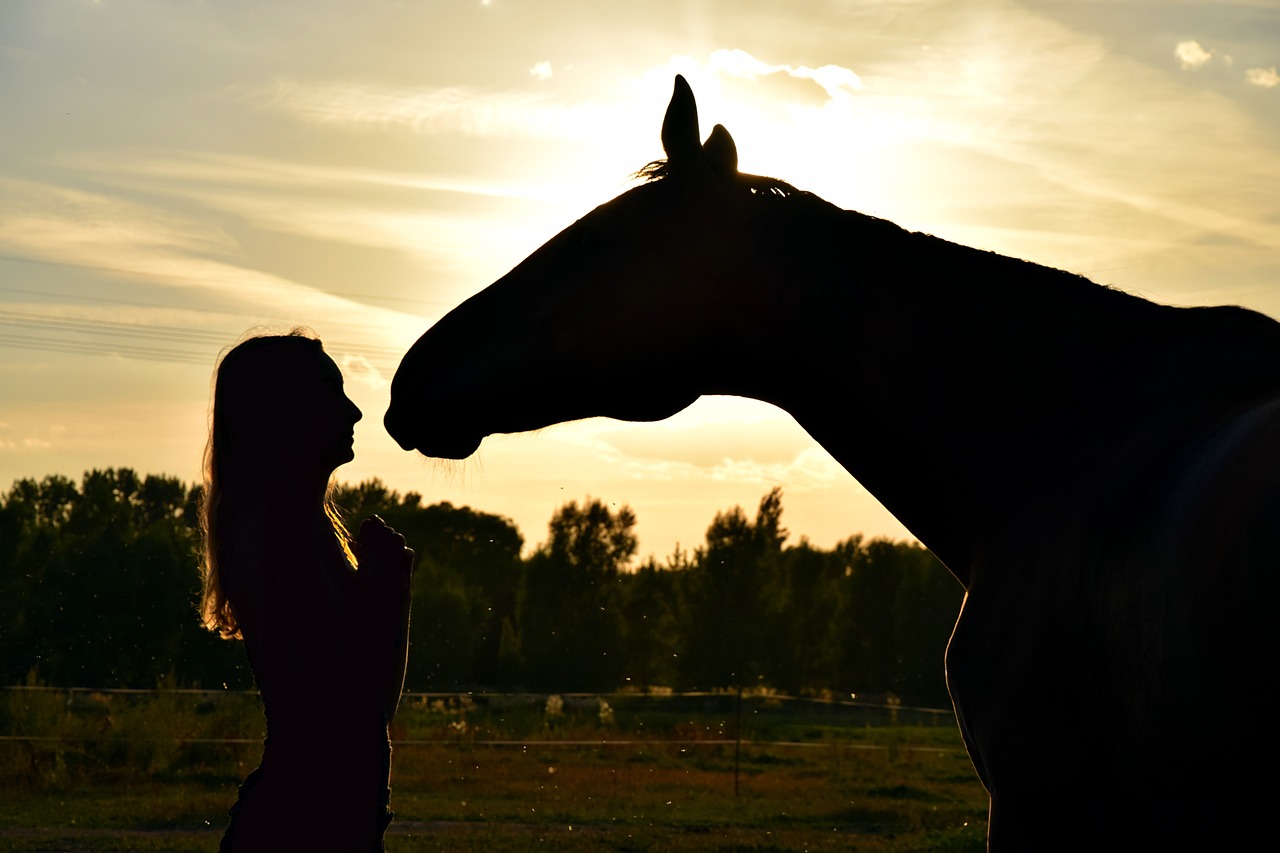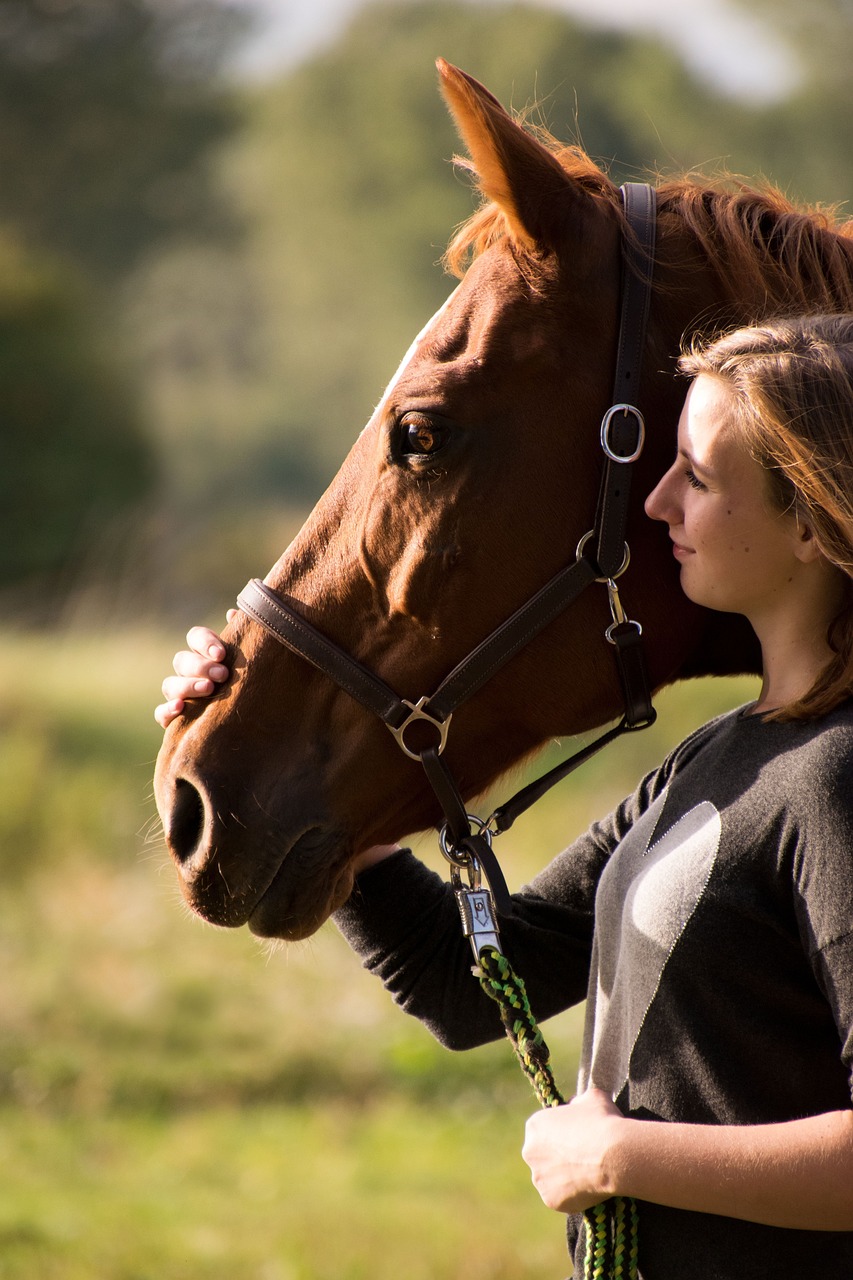
The history of mankind is intimately linked to the horse, an age-old alliance of respect, admiration and balance. Beyond horsemanship, this connection rests on pillars of trust, understanding and mutual respect. Horses are not simply means of transport or work, but social partners who need a relationship to flourish. To forge a genuine bond with these beautiful nags, harmonious and respectful communication is essential. In this article, we explore the basics of successful communication, how to strengthen that bond and establish a lasting relationship.

In equine coaching, mutual respect between man and horse is an essential principle. This goes far beyond simple politeness, and involves recognising and valuing the needs, differences and limits of each individual. To establish a genuine and natural relationship, it is important for humans to communicate respectfully with horses, avoiding all forms of coercion and paying particular attention to their personal space. In this way, by treating the equine with respect, a harmonious relationship can be built and maintained.
In the relationship with the horse, a a caring and empathetic attitude is essential for establishing a sincere relationship. Empathy means putting yourself in the other person's shoes, feeling their emotions and understanding their point of view. By adopting this posture, it becomes possible to better identify the expectations and needs of the equine, and to adapt your behaviour accordingly. This deep connection will also strengthen the trust that unites the human-horse pair, as is the case in equicoaching. Equicoaching is a helping method in which the horse is a partner. Its aim is to help people get to know themselves better, understand how they function and develop their personal or group well-being.

The relationship between man and horse is essentially based on non-verbal communication. Horses mainly interpret body signals such as movements, postures and facial expressions to understand a human's intentions, reacting instinctively to these subtle messages. To establish a beneficial method with your equine companion, it is essential to master your own non-verbal communication.
Similarly, as a rider, it is crucial to remain calm and relaxed in the presence of the horse when learning, as these sensitive animals can easily perceive stress or fear. You should also respect their personal space to establish a climate of trust.
Horses are very sensitive to human emotions, which they perceive and which are reflected in their behaviour. To establish a positive and beneficial contact, it is essential to regulate your own feelings and encourage a calm and confident state of mind. By avoiding projecting negative emotions onto your horse, you will foster an environment that is conducive to a flourishing human-horse relationship and successful horsemanship.
Establishing something solid with your horse is based on two essential elements: trust and leadership, particularly in the context of equine coaching.
Gaining the trust of your equine companion implies consistency in your actions and a predictable response to its needs, creating a bond of security and reliability.
This balanced relationship is built through a constant exchange between the guide, represented by the coach, and the follower, symbolised by the horse, where each benefits from the other's skills and expertise.
Understanding your partner's body language is therefore crucial to establishing fluid, positive communication.
Each horse develops at its own pace, requiring patience and a gradual approach. To work in a sustainable way, it is crucial to avoid rushing and to respect the animal's limits. Trust is built with perseverance, by giving the horse the time it needs to get used to the human presence  and develop a solid bond. There's no need to be discouraged if progress is slow, as each step reinforces a positive relationship. Careful observation of equine behaviour in a variety of situations enables us to better understand its emotional needs and respond appropriately, thereby strengthening communication and the bond between rider and companion.
and develop a solid bond. There's no need to be discouraged if progress is slow, as each step reinforces a positive relationship. Careful observation of equine behaviour in a variety of situations enables us to better understand its emotional needs and respond appropriately, thereby strengthening communication and the bond between rider and companion.
Communication with a horse is largely based on body language, where decoding subtle signals such as ear movements, posture and facial expressions is crucial to strengthening the connection and responding to the animal's needs.
Listening carefully to your animal is a fundamental prerequisite for effective, positive communication. Horses, with their marked sensitivity and intuition, are able to pick up on the emotions and intentions of those around them. By taking the time to observe and understand their body language, you are better equipped to respond to their needs and build a relationship based on trust.
In conclusion, establishing a solid relationship between man and horse is based on successful communication, founded on mutual respect, a caring and empathetic attitude and mastery of equine body language.
This relationship goes far beyond traditional horsemanship, requiring a deep understanding of the emotional and physical needs of the horse in its natural environment.
By adopting a respectful and attentive approach, riders can strengthen the trust and bond with their equine companion, paving the way for a fulfilling and rewarding equestrian experience.
If you're passionate about the horse world and want to get more involved, our site offers a variety of suitable properties. Whether you're looking for a equestrian property, a equestrian centre, a stud farm, a training centre, a equestrian gîte or even owner's stables, you'll find everything you're looking for in this environment.